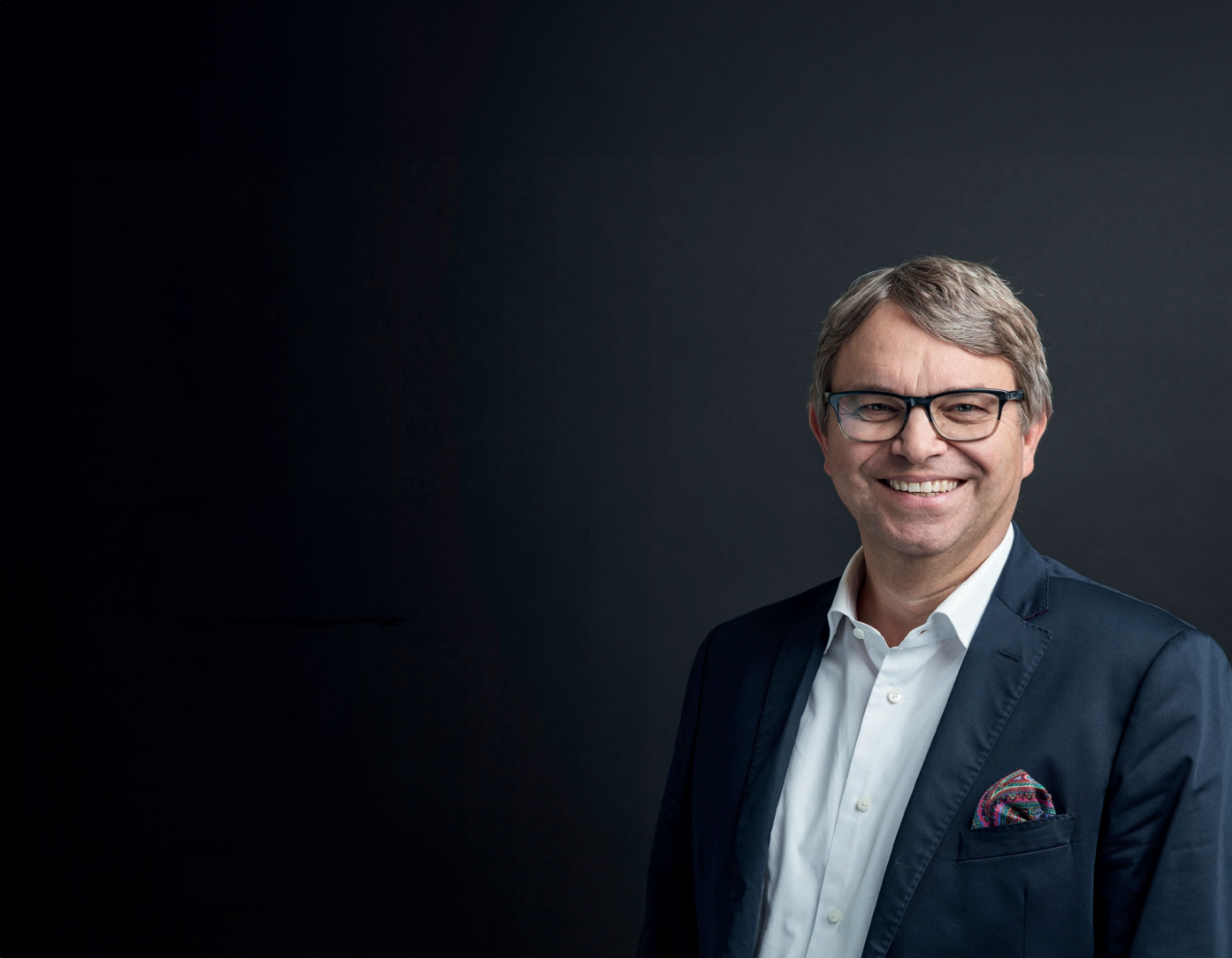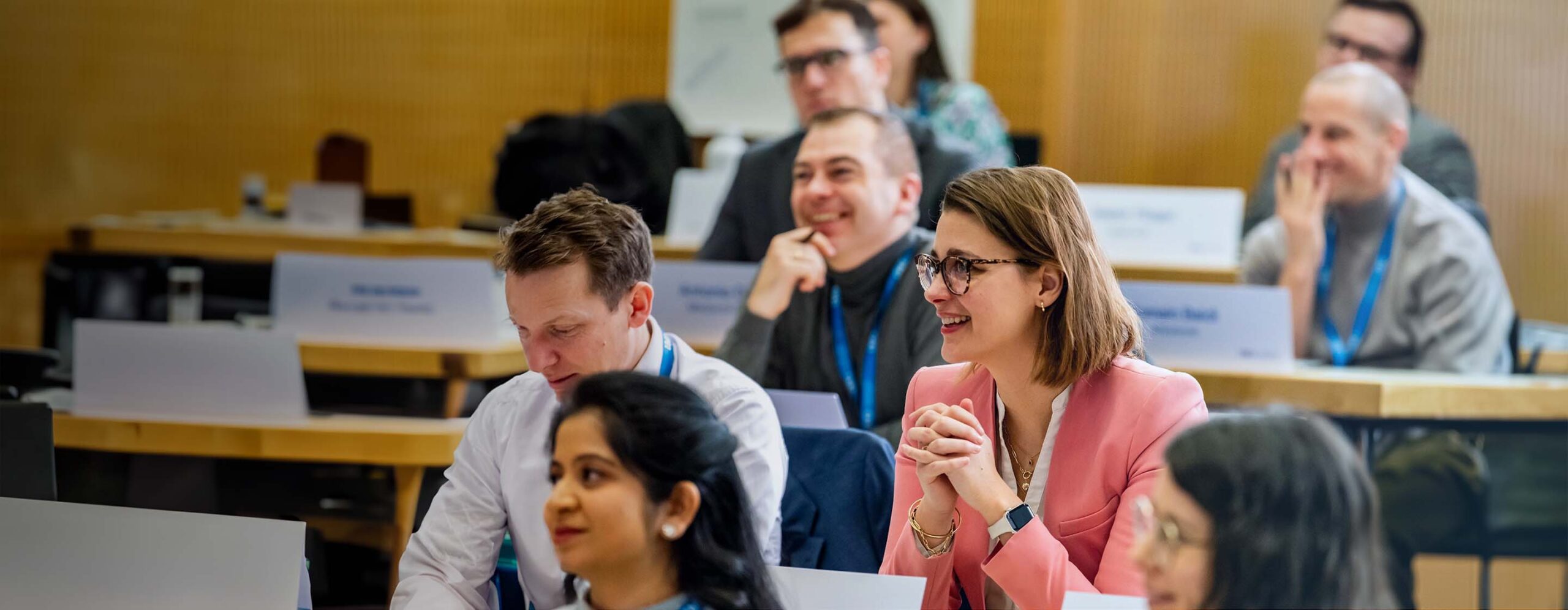
While the personal development is frequently cited as exceptionally valuable from one’s time at the EMBA, the rigorous learning on business systems and strategy are, of course, comparable. Gilbert Achermann had a background in banking, but after overseeing mergers and acquisitions and other transactional duties, he wanted an in-house strategic role.
After handling the IPO for the Swiss medical devices company Straumann, he was offered the position of CFO. Part of the deal was gaining executive education, and he opted for the EMBA at IMD. “I needed more foundation and skills in terms of strategic thinking, problem-solving, leadership,” he says. “Fast forward four years after the program, I then became the CEO of the company, so IMD must have done something well.”
“Fast forward four years after the program, I then became the CEO of the company”
He didn’t stop there, overseeing international growth for Straumann, which primarily specializes in dental implants and solutions for the orthodontic sector. It grew substantially during his tenure as CFO, his eight-year reign as CEO and afterwards as chair of the board: from CHF100 million revenue to around CHF2.5 billion revenue, and from a market capitalization of less than CHF500 million to almost CHF20 billion over the course of 20 years.
The insights from the EMBA had educated him on the changing needs of the organization as it scales up. “What’s good for a certain size is not good for the next phase: from CHF500 to CHF1 billion revenue, you need a different setup, from CHF1 billion to maybe CHF2 billion is different setup again, and the pendulum [swings] between centralization and decentralization… the foundation to think through this and be cognizant of this, I probably learned during my EMBA.”
Recently Gilbert chanced upon some of the written work from his studies, and was reassured by what he found. “I was cleaning out some stuff and I found some of my EMBA assignments. Some of the things I wrote at the time were actually very smart.”
The intellectual enrichment was neatly complemented by the personal development. He draws attention to the social context of education: learning alongside your peers.
“[It was] like an exploration of yourself, and understanding what you are good at and what you’re maybe not as good at, and how you deal with this. And also being exposed to a group of peers who are ambitious, are smart, are driven. This helps you to position yourself and understand where you are at in terms of your own development.”
Another legacy from the learning at IMD was the iterative, innovative approach to running a business: an approach of “let’s find out if this works”, rather than suffering paralysis by over-analysis.
“We [at Straumann] are much quicker, much more agile than most of our competitors. And that helped us to become the number one player in this space. And I think a lot of that foundation was ingrained through the Executive MBA.”
“I was cleaning out some stuff and I found some of my EMBA assignments. Some of the things I wrote at the time were actually very smart”
The Discovery Expeditions had a major impact. The visit to Shanghai occurred at a pivotal moment: early in the 21st century it was on the cusp of developing into the globally important business cluster that it is today. His role at Straumann has taken him back to China many times, so he has witnessed this historic development first-hand. The eclectic nature of the Discovery Expeditions, to public sector institutions and cultural and social visits as well as businesses, results in “a fairly good appreciation of actually what makes a country tick.”
A stellar career as a CEO can come at a personal cost, however. He doubts that anyone can hold down such a post for more than a decade, and after eight years he moved to the non-executive role as chair. The demands of being a CEO put a strain on his relationship with his family and he wonders if the pressures on a senior executive might be alleviated.
“One of the big challenges of all these, what are from the outside-in, brilliant careers is that usually there is a high collateral damage,” he says. “I’ve seen it over and over again with CEOs – they enter energized and they do a brilliant job, they put their heart in, but you can actually watch them ageing. CEO years are probably like dog years.”
He’s ready to move on, but not to retire. This year, he is stepping down from Straumann after 25 years of service. In 2025 he is due to take up the post of chair at Sonova, the world’s largest hearing aid manufacturer, where he is already a board member. He continues as chair of Ypsomed Group, a manufacturer of injection and infusion systems as well as Unilabs, a leading European diagnostic service provider. In addition, he mentors and provides financial support for startups and is a member of the IMD Supervisory Board.
His career has been one of continual evolution: the move from being a banker to an enterprising executive in a specialist device industry – with the intense and eclectic EMBA at IMD as the catalyst – is a metamorphosis that few can achieve.


